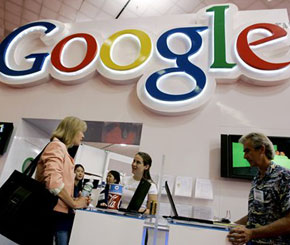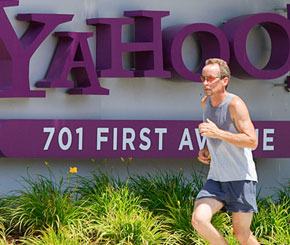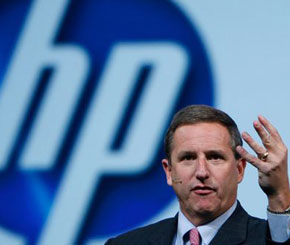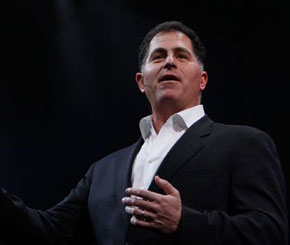Major Corporate Battles in History
Bangalore: Competition is very important in today's world. At the end of the day, one is branded as the winner and the other as the loser. But in the larger picture businesses compete to see who has the larger market share and how successful they are. Especially in the tech industry, competition is notoriously intense. Through their competition, the tech industry has drawn unparalleled innovation with iteration which helps far-fetched concepts to take shape into reality. Some of their innovations have become indispensable tools which run our lives and businesses. IT companies like Google, Apple, and Nokia have fascinated us with their products and services, but what drove their innovations? It was the rat race for the top positions.
Here is the list of the tech competitors who had the toughest battle to be the number one in their markets:
Google v/s Yahoo:

It is hard to ignore the fact that Yahoo set the mile stone for search engines. It was undoubtedly the leader in the search world. It gave stiff competitions to the then search engines like Lycos, Excite and AskJeeves. Yahoo! grew rapidly throughout the 1990s. Like many search engines and web directories, Yahoo! diversified into a Web portal. It also made many high-profile acquisitions. Its stock price skyrocketed during the dot-com bubble. In 2000, Yahoo! began using Google for search results. In 2000, Yahoo had about 56 percent of search engine referrals, six times its closest competitor. Over the next four years, it developed its own search technologies, which it began using in 2004. Yahoo! also revamped its mail service to compete with Google's Gmail in 2007. The company struggled through 2008, with several large layoffs.

Compared to Yahoo in the year 2000, Google was just a fraction of Yahoo holding on to 1 percent of the market share. In 2001, Yahoo started using Google's algorithm which instigated the competition between the two giants for market share. By 2002, Google had become very popular among the users and it referred about 31.8 percent of all searches compared to Yahoo's 36.3 percent. During the next eight years, Google grew exponentially and gained the monopoly in the search engine market. According to Comscore, in July of this year, Google had more than 65 percent of market share, while its closest competitor, still Yahoo!, had just 16.1 percent. Microsoft is trying to compete with Google by introducing the "Bing" search engine but has not seen any success till date.
Here is the list of the tech competitors who had the toughest battle to be the number one in their markets:
Google v/s Yahoo:
It is hard to ignore the fact that Yahoo set the mile stone for search engines. It was undoubtedly the leader in the search world. It gave stiff competitions to the then search engines like Lycos, Excite and AskJeeves. Yahoo! grew rapidly throughout the 1990s. Like many search engines and web directories, Yahoo! diversified into a Web portal. It also made many high-profile acquisitions. Its stock price skyrocketed during the dot-com bubble. In 2000, Yahoo! began using Google for search results. In 2000, Yahoo had about 56 percent of search engine referrals, six times its closest competitor. Over the next four years, it developed its own search technologies, which it began using in 2004. Yahoo! also revamped its mail service to compete with Google's Gmail in 2007. The company struggled through 2008, with several large layoffs.
Compared to Yahoo in the year 2000, Google was just a fraction of Yahoo holding on to 1 percent of the market share. In 2001, Yahoo started using Google's algorithm which instigated the competition between the two giants for market share. By 2002, Google had become very popular among the users and it referred about 31.8 percent of all searches compared to Yahoo's 36.3 percent. During the next eight years, Google grew exponentially and gained the monopoly in the search engine market. According to Comscore, in July of this year, Google had more than 65 percent of market share, while its closest competitor, still Yahoo!, had just 16.1 percent. Microsoft is trying to compete with Google by introducing the "Bing" search engine but has not seen any success till date.
HP v/s Dell:

Dell produced its first computer way back in 1985 called the "Turbo PC." Dell Computer Corporation began expanding globally in the 1988. In 1996, Dell began selling computers via its web site. In 2003, the company was rebranded as simply "Dell Inc." to recognize the company's expansion beyond computers. In late 2006, Dell lost its lead in the PC-business to Hewlett-Packard.

Both Gartner and IDC estimated that in the third quarter of 2006, HP shipped more units worldwide than Dell did. Dell's 3.6 percent growth paled in comparison to HP's 15 percent growth during the same period. The problem got worse in the fourth quarter, when Gartner estimated that Dell PC shipments declined 8.9 percent (versus HP's 23.9 percent growth). As a result, at the end of 2006 Dell's overall PC market-share stood at 13.9 percent (versus HP's 17.4 percent).
Dell produced its first computer way back in 1985 called the "Turbo PC." Dell Computer Corporation began expanding globally in the 1988. In 1996, Dell began selling computers via its web site. In 2003, the company was rebranded as simply "Dell Inc." to recognize the company's expansion beyond computers. In late 2006, Dell lost its lead in the PC-business to Hewlett-Packard.
Both Gartner and IDC estimated that in the third quarter of 2006, HP shipped more units worldwide than Dell did. Dell's 3.6 percent growth paled in comparison to HP's 15 percent growth during the same period. The problem got worse in the fourth quarter, when Gartner estimated that Dell PC shipments declined 8.9 percent (versus HP's 23.9 percent growth). As a result, at the end of 2006 Dell's overall PC market-share stood at 13.9 percent (versus HP's 17.4 percent).
Apple v/s Nokia:

In the fourth quarter of 2007, Nokia was leading the phone market with about 50 percent of worldwide market share. The RIM based Blackberry was far behind it with 10 percent and Apple was just 5.2 percent.

The year 2010 was a major breakthrough for Apple and they slowly made it over to the top. The market share of Apple was 16 percent in 2010 which was half of that of Nokia's 28 percent. With Steve Jobs's innovative ideas, the company released some amazing products which brought them into the lead. As of the second quarter of 2011, according to IDC, the company had 19.1 percent market share with an annual growth rate of 141 percent. Nokia, which has moved into third behind Samsung, had a 15.7 percent share, with a growth rate of -30.7 percent.
In the fourth quarter of 2007, Nokia was leading the phone market with about 50 percent of worldwide market share. The RIM based Blackberry was far behind it with 10 percent and Apple was just 5.2 percent.
The year 2010 was a major breakthrough for Apple and they slowly made it over to the top. The market share of Apple was 16 percent in 2010 which was half of that of Nokia's 28 percent. With Steve Jobs's innovative ideas, the company released some amazing products which brought them into the lead. As of the second quarter of 2011, according to IDC, the company had 19.1 percent market share with an annual growth rate of 141 percent. Nokia, which has moved into third behind Samsung, had a 15.7 percent share, with a growth rate of -30.7 percent.
Facebook v/s Myspace:

The Rupert Murdoch's News Corporation purchased the ever emerging Myspace for $580 in 2005. Facebook was still in its college days (was restricted to college students) then. In May 2007, Facebook's monthly users were hardly a 30 million while Myspace was peaking with around 70 million users.

Two years later saw a completely different story. In May 2009, Facebook equaled and then surpassed Myspace's unique 70 million users. In 2011 Facebook emerged as the sole leader. In May 2011, Facebook had almost 160 million users. Meanwhile, Myspace has dropped to 40 million and the numbers have been steadily declining. In June this year, Murdoch sold the dying company for $35 million, 93 percent less than the original purchase price.
The Rupert Murdoch's News Corporation purchased the ever emerging Myspace for $580 in 2005. Facebook was still in its college days (was restricted to college students) then. In May 2007, Facebook's monthly users were hardly a 30 million while Myspace was peaking with around 70 million users.
Two years later saw a completely different story. In May 2009, Facebook equaled and then surpassed Myspace's unique 70 million users. In 2011 Facebook emerged as the sole leader. In May 2011, Facebook had almost 160 million users. Meanwhile, Myspace has dropped to 40 million and the numbers have been steadily declining. In June this year, Murdoch sold the dying company for $35 million, 93 percent less than the original purchase price.
No comments:
Post a Comment